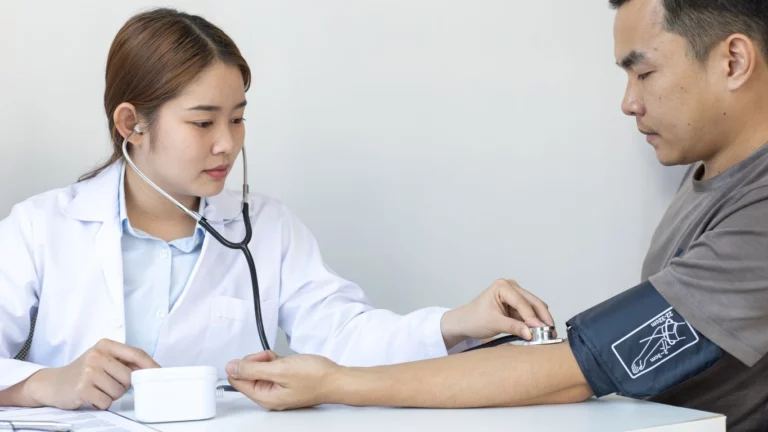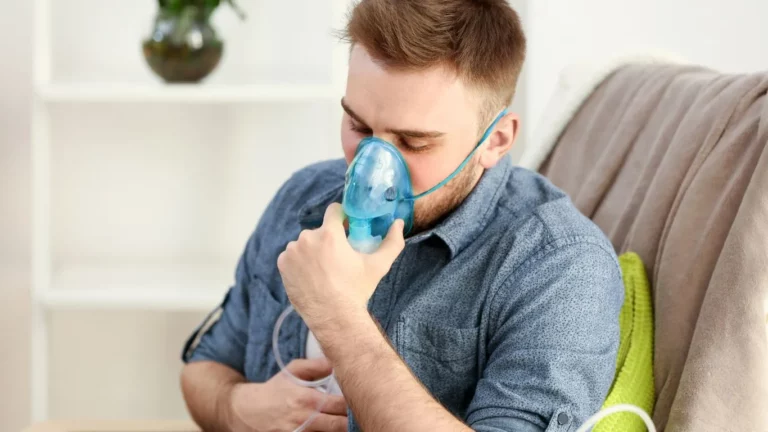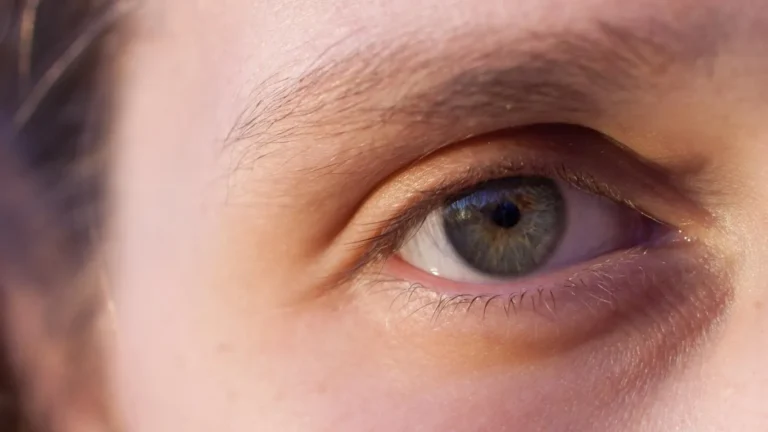GERD Symptoms Explained: How to Spot and Manage This Digestive Nightmare
As a Medical Assistant working in a Gastroenterology Clinic, I’ve seen firsthand how debilitating GERD (Gastroesophageal Reflux Disease) can be. It’s not just about heartburn—it’s a digestive nightmare that affects millions of people worldwide. Many patients often don’t realize they’re experiencing GERD because its symptoms can be mistaken for other conditions. In this blog post, I’m going to break down how to spot GERD symptoms, what they mean, and, most importantly, how to manage them effectively. Let’s dive into this digestive issue that could be silently affecting your daily life.
What is GERD? Understanding the Basics
GERD, or Gastroesophageal Reflux Disease, is a chronic digestive condition where stomach acid or bile irritates the food pipe lining, causing uncomfortable symptoms. At its core, GERD happens when the lower esophageal sphincter (LES)—the valve between your stomach and esophagus—relaxes or weakens inappropriately. This allows stomach acids to flow back up into the esophagus, resulting in that all-too-familiar burning sensation or heartburn.
But GERD isn’t just about occasional discomfort. It’s a persistent condition that can lead to more severe health issues if left untreated. Over time, it can damage the lining of your esophagus, lead to ulcers, or even increase the risk of esophageal cancer. Trust me, it’s more than just an inconvenience, which is why it’s so important to understand the symptoms early on.
How to Spot GERD Symptoms

So, how do you know if you’re experiencing GERD? The symptoms can vary, and they don’t always manifest in the same way for everyone. Some people experience mild heartburn, while others may struggle with more severe, ongoing symptoms. Here are the most common signs to watch out for:
1. Heartburn: The Classic GERD Symptom
If you’ve ever felt a burning sensation in your chest, just behind your breastbone, that’s likely heartburn—the hallmark symptom of GERD. It often occurs after eating, particularly after large meals or lying down shortly after eating. This sensation can be intense, and sometimes it even radiates to the throat, jaw, or arms. While occasional heartburn is normal, frequent episodes could indicate GERD.
2. Regurgitation: That Unpleasant Sour Taste
Regurgitation is when stomach contents flow back into the throat or mouth. This can give you a sour or bitter taste in your mouth, and in some cases, you may even experience the sensation of food coming back up. It’s an unpleasant feeling that often accompanies heartburn, and it’s a key indicator of GERD.
3. Difficulty Swallowing
If you’ve noticed that swallowing has become more difficult or painful, GERD might be the culprit. The acid reflux can cause inflammation in the esophagus, making it feel tight or narrow. In some cases, it may even feel like food is getting stuck in your throat. This condition is known as dysphagia, and it’s a common symptom of GERD.
4. Chronic Cough and Sore Throat
Surprisingly, GERD can affect more than just your stomach. The constant backflow of stomach acid can irritate the throat and voice box, leading to a chronic cough, hoarseness, or a sore throat. If you’re dealing with a cough that won’t go away, especially at night, GERD might be the cause.
5. Chest Pain: Not Always a Heart Attack
While chest pain can be a warning sign of a heart attack, it’s also a common symptom of GERD. The pain often feels like a tightness or pressure in the chest, sometimes leading to confusion as it may resemble heart-related issues. However, GERD chest pain is usually brought on by eating, bending over, or lying down. It’s important to get chest pain checked out by a doctor to rule out any heart-related issues, but if your pain is linked to acid reflux, it’s likely a symptom of GERD.
How GERD Affects Daily Life
Having GERD isn’t just about dealing with the discomfort of heartburn or regurgitation—it can also impact your quality of life. From interrupted sleep to avoiding certain foods, the effects of GERD can take a significant toll. Patients often find themselves adjusting their lifestyles to cope with the symptoms, and over time, this can lead to frustration and fatigue.

As someone who has worked closely with GERD patients, I’ve seen how it affects not only their physical health but also their mental and emotional well-being. The fear of triggering an episode can cause anxiety, and for some, it leads to avoiding social situations, certain foods, and even exercise. It’s more than just an inconvenience—it becomes a constant battle for those living with the condition.
Managing GERD: Early Intervention is Key
If you’re experiencing any of these symptoms, it’s crucial to take action early. The earlier you spot GERD and begin to manage it, the better your chances of preventing further damage to your esophagus. But what does managing GERD really look like?
Dietary Changes: What to Eat and What to Avoid
Diet plays a major role in managing GERD. Certain foods can trigger acid reflux, while others can help soothe the digestive tract. If you have GERD, you might want to steer clear of spicy foods, citrus, chocolate, and caffeine. These can all relax the LES and allow stomach acid to flow back into the esophagus.
On the flip side, eating smaller, more frequent meals and avoiding large meals late at night can help reduce pressure on the stomach. Foods like oatmeal, ginger, and non-citrus fruits are more GERD-friendly and can help calm the digestive system.
Medications: Over-the-Counter and Prescription Options
In many cases, managing GERD will involve some medication. Over-the-counter antacids and proton pump inhibitors (PPIs) are commonly used to reduce stomach acid production and alleviate symptoms. If your GERD is more severe, your doctor might recommend prescription medications to control the reflux.
Remember, medication can help control GERD symptoms, but lifestyle changes, like diet modifications and avoiding triggers, are equally important in managing the condition effectively.

GERD Treatment Options: What You Need to Know
If you’re dealing with GERD, you’re probably wondering about the best ways to manage it long-term. In addition to lifestyle and dietary changes, there are several treatment options that can help keep symptoms at bay. While medication is a common choice, there are other strategies that might be recommended depending on the severity of your GERD.

As a Medical Assistant, I’ve seen patients go through various treatment routes, each with varying levels of effectiveness. For some, lifestyle changes and over-the-counter medications work wonders. For others, a more comprehensive treatment plan that includes prescription medications or even surgical options may be necessary. Let’s break down the treatment options available to help you understand what might work best for you.
Over-the-Counter Medications: A First Line of Defense
For many people with mild GERD, over-the-counter (OTC) medications are an easy and accessible first step in managing symptoms. These medications include antacids, H2 blockers, and proton pump inhibitors (PPIs). Each works in different ways to reduce the amount of stomach acid that can cause irritation in the esophagus.
- Antacids: These neutralize stomach acid and can provide quick relief for occasional heartburn. Popular options include Tums, Rolaids, and Mylanta.
- H2 Blockers: These reduce acid production and offer longer-lasting relief than antacids. Common H2 blockers include ranitidine (Zantac) and famotidine (Pepcid).
- Proton Pump Inhibitors (PPIs): PPIs, like omeprazole (Prilosec), reduce acid production even more effectively than H2 blockers and are often recommended for frequent GERD symptoms.
These medications are great for controlling symptoms, but they don’t address the underlying issue, so they may not work for everyone, especially if GERD has become more severe.
Prescription Medications: Stronger Solutions for Severe GERD
If over-the-counter medications aren’t enough, your doctor may prescribe stronger medications. These might include prescription-strength PPIs or H2 blockers. Sometimes, a combination of medications is needed to control GERD symptoms effectively.
One thing to note here is that long-term use of PPIs or H2 blockers can come with side effects like nutrient deficiencies, so it’s important to work with your doctor to manage the dosage and duration. Additionally, if symptoms persist despite medication, your doctor may suggest further testing to evaluate whether there’s an underlying issue that needs more specialized treatment.
When Surgery Becomes Necessary
In more severe cases of GERD, when all other treatments have failed, surgery might be the only option left. Thankfully, surgical procedures for GERD have come a long way and are less invasive than ever before. However, surgery is generally considered a last resort after other treatments have been exhausted.

The most common surgery for GERD is called fundoplication. This procedure involves wrapping the top of the stomach around the lower esophagus to reinforce the LES and prevent acid reflux. It’s typically performed laparoscopically, which means smaller incisions and a quicker recovery time.
Another less common procedure is the LINX device implantation. This involves placing a small ring of magnetic beads around the LES to help keep it closed and prevent acid from flowing back into the esophagus. Both of these surgeries are effective for treating GERD, but as with any surgery, there are risks involved, so it’s important to have a thorough discussion with your healthcare provider about whether this is the right option for you.
Lifestyle Modifications: The Foundation of GERD Management
While medications and surgery play an important role, lifestyle modifications are absolutely essential in managing GERD in the long term. In my experience, patients who make consistent changes to their habits tend to have better control over their symptoms, even if they’re also using medications.
Maintaining a Healthy Weight
One of the most effective ways to reduce GERD symptoms is by maintaining a healthy weight. Excess weight, especially around the abdomen, can put extra pressure on the stomach, leading to more frequent acid reflux episodes. I’ve seen many patients experience significant improvement simply by losing a few pounds and adopting a more active lifestyle.
Elevating the Head of Your Bed
If you find that GERD symptoms worsen at night, elevating the head of your bed can help keep acid from flowing back into your esophagus while you sleep. You don’t need to stack up a bunch of pillows; instead, try raising the head of the bed by about 6-8 inches for the best results. This can make a huge difference in reducing nighttime reflux and improving sleep quality.
Avoiding Trigger Foods and Beverages
As I mentioned earlier, certain foods and beverages are more likely to trigger GERD symptoms. It’s essential to identify your personal triggers and avoid them as much as possible. Common offenders include:
- Spicy foods
- Fried and fatty foods
- Chocolate
- Citrus fruits
- Caffeine and alcohol
Everyone’s triggers are different, so keeping a food diary can help you pinpoint which items cause your symptoms to flare up. Once you know which foods to avoid, it becomes much easier to prevent symptoms before they start.
Quitting Smoking
If you’re a smoker, it’s time to quit—seriously. Smoking relaxes the LES and increases the production of stomach acid, which can make GERD symptoms much worse. While quitting isn’t easy, the benefits of doing so go far beyond GERD management. Your heart, lungs, and overall health will improve, and you’ll be helping to reduce your reflux symptoms too.

When to See a Doctor About GERD
At this point, you may be wondering, “When should I actually see a doctor about my GERD symptoms?” Well, as someone who’s seen patients come in with varying degrees of GERD, I can tell you that it’s best not to wait until things get worse. GERD may seem manageable at first, but untreated, it can lead to serious complications like esophageal ulcers, strictures, or even a condition called Barrett’s esophagus, which can increase the risk of esophageal cancer.

If your symptoms are frequent—happening more than twice a week—or if over-the-counter medications aren’t providing relief, it’s time to consult a healthcare professional. A doctor can help confirm whether you have GERD, perform tests to assess the severity, and create a personalized treatment plan.
Here are a few signs that it’s time to see a doctor:
- Your symptoms are getting worse or are no longer manageable with over-the-counter medications.
- You experience difficulty swallowing or the sensation that food is stuck in your throat.
- You have persistent chest pain or heartburn that doesn’t improve with medication.
- You’ve developed a cough, hoarseness, or sore throat that doesn’t go away.
- You’re experiencing unexplained weight loss, vomiting, or black stools—these could be signs of complications related to GERD.
Remember, GERD isn’t just a nuisance. If left untreated, it can cause significant damage to your digestive system. Early intervention is key to managing symptoms and avoiding serious health issues down the line.
Living with GERD: Tips for a Better Quality of Life
While GERD can be a persistent challenge, there are ways to live a normal, healthy life while managing your symptoms. I’ve worked with patients who have found great success in adapting their lifestyle to reduce the impact of GERD. Here are some practical tips that could help you get a handle on your condition:
1. Prioritize Your Sleep Position
Sleeping with your head elevated is a game changer when it comes to GERD. As I mentioned earlier, gravity plays a significant role in keeping acid where it belongs—in your stomach. Sleeping on your left side and keeping your head elevated by about 6 to 8 inches can prevent acid reflux during the night. You can purchase a wedge pillow or raise the head of your bed to make this more comfortable.
2. Stay Hydrated
Drinking plenty of water can help dilute stomach acid and support overall digestive function. I recommend sipping on water throughout the day, especially during meals, as it can help your digestive system break down food more easily and reduce the likelihood of acid reflux. However, be cautious with beverages like coffee or carbonated drinks, which can trigger GERD symptoms in some people.
3. Eat Smaller, More Frequent Meals
Large meals place extra pressure on the stomach and the LES, leading to more reflux. I always suggest patients eat smaller meals throughout the day instead of large, infrequent ones. Eating smaller portions helps prevent the stomach from becoming too full, which can reduce the chances of acid reflux.
4. Don’t Lie Down Right After Eating
It’s tempting to kick back after a delicious meal, but lying down can make GERD symptoms worse. Try to wait at least 2 to 3 hours before lying down or going to bed. This gives your body time to digest the food and keeps acid from flowing back into your esophagus.
References
For more in-depth information on GERD and treatment options, you can check out these trusted health resources:
Disclaimer
The information provided in this blog post is for educational purposes only and is not intended as medical advice. If you suspect that you have GERD or any other medical condition, please consult with a healthcare provider for a proper diagnosis and treatment plan. Always follow your doctor’s advice regarding medical treatments and lifestyle modifications.

Camellia Wulansari is a dedicated Medical Assistant at a local clinic and a passionate health writer at Healthusias.com. With years of hands-on experience in patient care and a deep interest in preventive medicine, she bridges the gap between clinical knowledge and accessible health information. Camellia specializes in writing about digestive health, chronic conditions like GERD and hypertension, respiratory issues, and autoimmune diseases, aiming to empower readers with practical, easy-to-understand insights. When she’s not assisting patients or writing, you’ll find her enjoying quiet mornings with coffee and a medical journal in hand—or jamming to her favorite metal band, Lamb of God.







